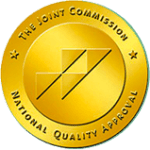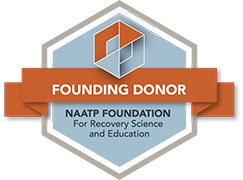Could You Be Sabotaging Your Sobriety?
A common assumption for those who’ve completed treatment is that they’ve got everything figured out. They’ve made it through a year, or two years, or twenty years or more of sobriety thus far, so they shouldn’t have to worry anymore about relapse, right? Well, not quite – recovery is a lifelong process, and that doesn’t exclude those in long-term recovery. Even the most vigilant people have to stay focused to ensure that triggers and cravings do not get the best of them.
Recovery Sabotage: What to Watch Out For
With this upcoming year on the horizons, you may be thinking a bit about your journey and how far you’ve come. This is often a time of reflection for people – but if you’re not quite where you want to be, or if you’ve been experiencing quite a few bumps in your recovery lately, it is certainly possible that you could be getting in our own way. Richard Kensinger, a clinician with over 40 years in behavioral health, explained to The Fix in April of 2018 that the mind is an incredibly powerful tool; our perception on ourselves, on others, on our recovery – on life – can affect the way we carry out our daily lives. Even when we’re not admitting it to ourselves, there are several false beliefs we may hold in our subconscious that sabotage our recovery. Some examples of these are:
- Believing that we’re strong enough in our recovery that we can revert to spending time with those we use to use substances with
- Being dishonest to ourselves about triggers we’re experiencing because we don’t want to put in the effort to work through them
- The belief that sobriety is a cure for all our problems
- Disregarding those who would be excellent motivators in your recovery
It’s easy for us to become complacent in our recovery, especially if we’ve spent a lot of time towards it and we’re finally at the place we want to be. That doesn’t mean that we should stop there, however, because even over-confidence in our capabilities could cause us to lose our balance.
In 2016, a young man shared his experience of struggling with addiction and recovery via Medium. He explained that once he thought his life was back to normal – he had an excellent job, he was earning a fruitful income, his family was doing well – he faltered because he wasn’t taking his recovery as seriously as he should have been. He had once stated, “For guys who stop going to meetings, who stop AA, the chance of relapse increases every day. Once I stopped, I had no defense against picking up.”
There are number of warning signs for recovery self-sabotage, such as:
- Feeling overly confident or complacent in your recovery
- Criticizing yourself constantly, such as saying, “It’s all my fault”, “They are better than me”, etc.
- Picking arguments with other people for no apparent reason
- Procrastinating on doing things that are really vital to your recovery – such as attending 12-Step meetings, following up with your sponsor or therapist, connecting with peers in recovery, practicing self-care, and more
- Feeling as though you haven’t truly earned the success you’ve achieve thus far. It’s common for many people to feel as though they’re not worthy, deserving, or even that they’re “frauds” to their own recovery. Let’s face it – the work you’ve put in has been your own. Understand your limitations, but also give credit where it’s due.
- Overindulging in something because you’re stressed, anxious, etc. Have you been binge-watching Netflix a little too much? Are you overeating? These are some telling signs that something deeper may be bothering you – and it’s best that you put in the work to find out why, rather than let it linger in the back of your mind.
While over-confidence, distraction, complacency, self-loathing and more can all bring a person in long-term recovery into the throes of relapse, what can be done to prevent it? Or, better yet, what can be done once some clear signs of self-sabotaging have already begun?
Steps to Get Back on Track
- Be honest with yourself. No longer can you withhold the fact that you’ve been feeling down lately. Your recovery has perhaps plummeted a bit, but your awareness of this fact is the first step you need to get right back on track.
- Assess what’s been happening. What have your thought patterns been like lately, and how have these thoughts contributed to the way you’ve been acting towards yourself and others? Consider writing in a journal to keep track of how you’ve been feeling, so that you can start to recognize any triggers that you may not be noticing as readily.
- Reach out to your support network. Attend your 12-Step program. Call up your sponsor. Speak with your loved ones about how you’ve been feeling. The more you can talk to others about this, the better you’ll be able to work through everything. You’re not alone.
- Don’t give up. Remind yourself of the reasons why you started your journey to recovery in the first place. Recall how it felt when you were taking part in unhealthy behaviors as an attempt to cover up how you really felt inside. Strengthen that desire to overcome your tribulations by pushing yourself again towards true healing.
This is the year to change your life from suffering due to the disease of addiction to thriving in the sunlight of the spirit of sobriety. As the world’s first 12-Step treatment center, established in 1939, High Watch Recovery is dedicated to educating patients on 12-Step principles, actions, philosophies, and lifestyles, preparing them to live a happy and healthy sober life after graduating. For information on our continuum of clinical care and our compassionate approach to treatment, call us today: 860.927.3772.








